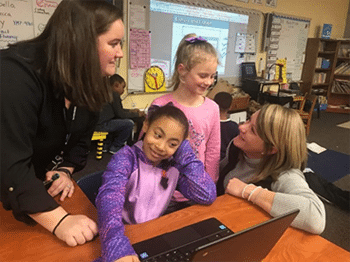10 Jun2019
By Jeffrey Johnston
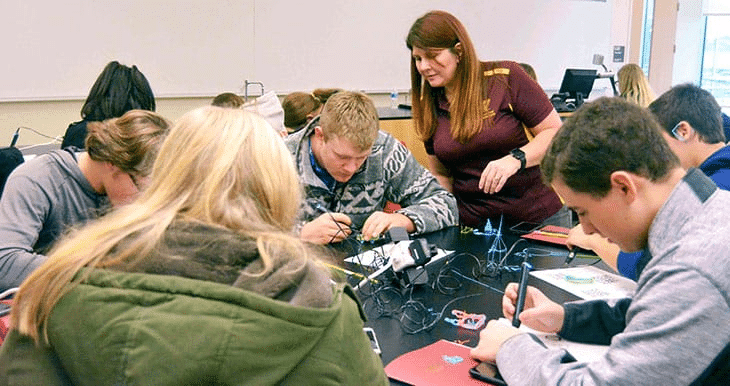
This article and photo originally appeared on the Central Michigan University website and are reprinted with permission.
What can you add to 688 to total 958?
In Central Michigan University’s teacher education programs, the answer is one year: From fall 2017 to fall 2018, admittance and enrollment in teacher ed grew from 688 students to 958, a 39% increase.
To Betty Kirby, acting dean of CMU’s College of Education and Human Services, the explanation is simple.
“CMU is the place to come for excellent teacher preparation,” she said, “and now is a great time to become a teacher.”
30 May2019
By Brandon R.T. Frost
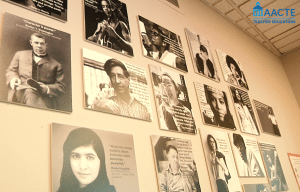
Portland State University’s Graduate School of Education offers a unique, two-year, full-time master’s degree in secondary dual education. In 2014, the Department of Curriculum and Instruction and the Department of Special Education joined together to meet the need of the surrounding communities to increase the number of teachers who are skilled in effective practices for a variety of students. Graduates of the program are equipped to implement inclusive and equitable practices.
“The secondary dual education program in the Graduate School of Education really represents, I think, innovation, collaboration, and equity and inclusion at its highest levels,” says Marvin Lynn, dean of the Graduate School of Education at Portland State University. This particular program was born out of need to ensure all teachers are meeting the needs of all students in the classroom. The emphasis on diversity and equity is part of the Graduate School of Education’s strategic mission as an access university.
30 May2019
By Jennifer Babich
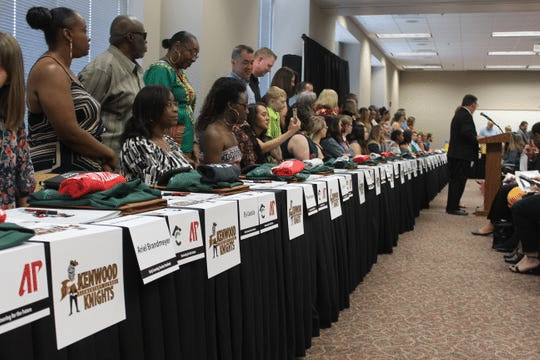
The first class of residents in the Early Learning Teacher Residence program, a partnership between Austin Peay State University and the Clarksville-Montgomery County School System, wait to sign their contracts on May 24, 2019. (Photo: Jennifer Babich)
This article and photo originally appeared in the Leaf Chronicle and are reprinted with permission.
These are not your typical college students.
Instead, they’re the first class of aspiring professionals embarking on a free three-year residency and degree program to turn themselves into teachers, as part of a partnership between Clarksville-Montgomery County Schools and Austin Peay State University.
24 May2019
By Brandon R.T. Frost
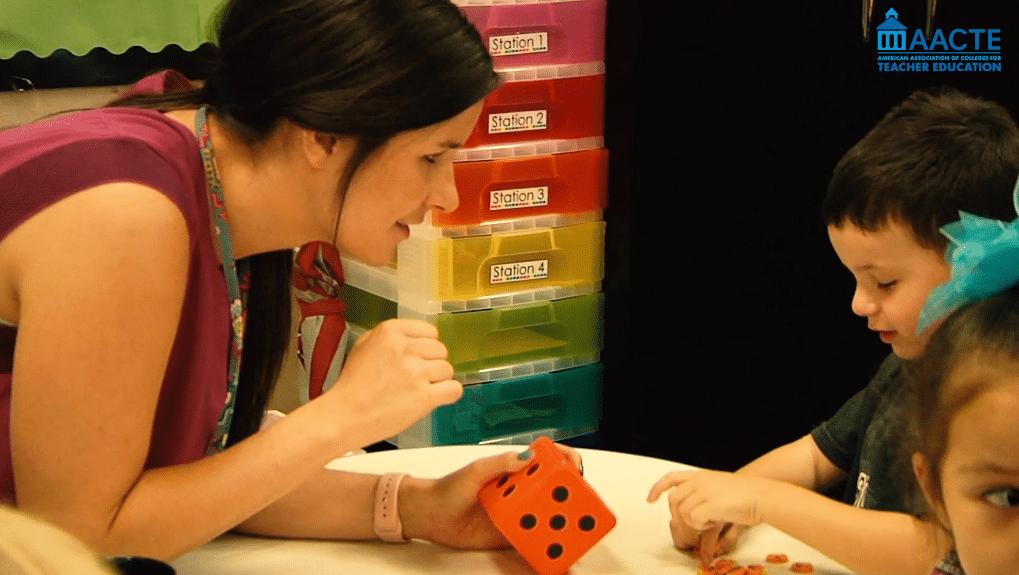
Bowling Green State University’s innovated Inclusive Early Childhood Education program seeks to address the need for teacher candidates to be well prepared to enter the classroom. BGSU recognized the importance of shifting their program to assist their teacher candidates in garnering the necessary teaching practices for a changing classroom environment. “We certainly have a wide array of learners with very diverse needs and one the things that this program helps us do is to ensure that we are graduating teachers that are ready to meet the needs of all those learners,” says Dawn Shinew, dean of the College of Education and Human Development at Bowling Green State University.
Every year, BGSU places over 900 teachers through 88 different partnerships with school districts throughout Ohio, which include both urban and rural districts and social service agencies. Teachers are expected to continue taking coursework during their clinical placements to ensure there is a connection among their coursework and their teacher training in the field. More importantly, BGSU believes teacher candidates should be exposed to the fieldwork earlier than what more traditional programs prescribe. Whereas other, more traditional programs place teacher candidates as student-teachers in their senior year of undergraduate studies, BGSU starts placing juniors in clinical settings with the hope to increase their exposure to their career and receive additional training in a variety of education settings, including special education and inclusive classrooms.
20 May2019
By Jane E. West
This blog post is written by AACTE consultant Jane West and is intended to provide update information. The views expressed in this post do not necessarily reflect the views of AACTE.
Today marks the 65th Anniversary of the Brown vs. Board of Education Supreme Court landmark decision that established the principle that separate is not equal. How far have we come? Much to contemplate here. You will see below that a House education panel spoke loud and clear on that topic: we have a long way to go.
- Trump Proposes Taking More Funds from Pell Grants – to Fund Moonshot? Huh?
This week President Trump submitted to Congress some revisions to his original budget request. Notably, he took back the proposed cut he originally made for Special Olympics (after great bipartisan outrage); but he also added a new cut in the form of an additional $1.9 billion to the Pell grant surplus. It appears that the Pell cut would go toward funding the President’s proposed 2024 NASA moonshot! Education advocates were outraged. As Jon Fansmith of the American Council on Education put it: “Do I want to make college more expensive to fund space travel to the moon and Mars?” Hmmmm …
The President had already requested a $2 billion cut in Pell funding. So the total $3.9 billion recission would result in the Pell surplus being exhausted by 2022! This request is likely to be ignored on Capitol Hill, as no one—Republican or Democrat—ever really contemplated cutting Special Olympics. And while the Pell Surplus has been modestly raided in the past, a $3.9 billion cut is highly unlikely.
06 May2019
By Jacqueline Rodriguez
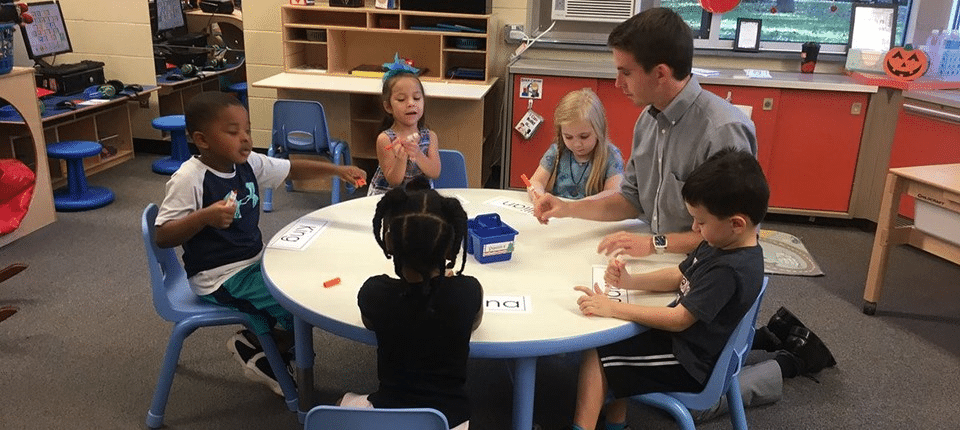
AACTE received nearly 50 applications from preparation programs across the country to participate in the Reducing the Shortage of Special Education Teachers Networked Improvement Community supported by the CEEDAR Center! The AACTE Reducing the Shortage of Special Education Teachers Networked Improvement Community (NIC) aims to address the problem of the shortage and lack of diversity of fully prepared and credentialed special education teachers in public schools across the nation.
AACTE is proud to be partnering with the following member institutions in reducing the special education teacher shortage:
Cleveland State University
Eastern Michigan University
Texas State University
University of Central Florida
University of Nebraska at Omaha
University of Northern Colorado
University of Oregon
University of Wisconsin at Madison
Virginia State University
Western Kentucky University
12 Apr2019
By Denise Pearson

Historically black colleges and universities (HBCUs) and other minority-serving institutions (MSIs) are uniquely positioned to engage higher education policymakers, researchers, practitioners, and other stakeholders to increase the participation of males of color throughout the teacher pipeline. To that end, Project Pipeline Repair: Restoring Minority Male Participation and Persistence in Educator Preparation Programs is a three-year, research-based initiative that emphasizes cross-sector collaboration as foundational to addressing three interconnected problems: nationwide teacher shortages, the lack of teacher diversity, and the teaching profession narrative.
On October 2-5, 2019, the State Higher Education Executive Officers Association (SHEEO) will host the Project Pipeline Repair Summit that will bring together P-16 policy, institutional, and community leaders to culminate this collaboration between state agencies, HBCUs, and partnering school districts in four states (Arkansas, Louisiana, Mississippi, and South Carolina). During the Summit, we will engage in deep conversations with higher education policy and practice experts, including educator preparation researchers and practitioners. Representatives from other MSIs and organizations with similar aims are welcomed, and will also be present to expand the learning and build capacity in these important policy and practice areas.
05 Apr2019
By Brandon R.T. Frost
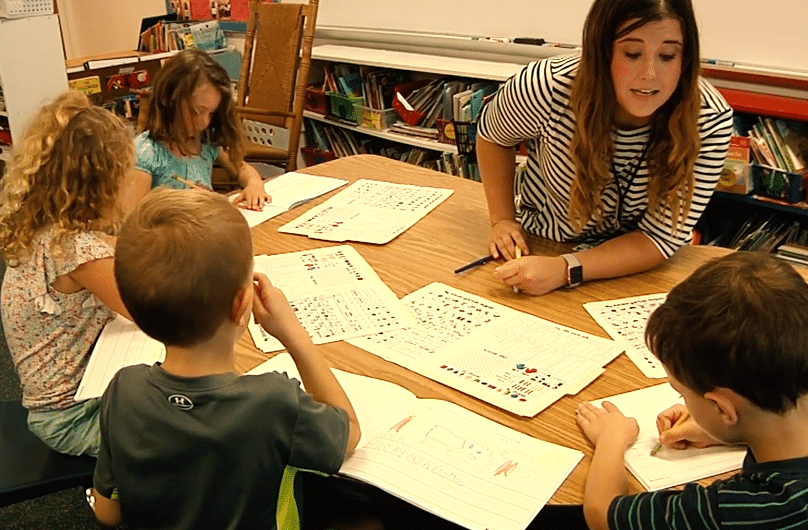
AACTE identified and documented two exemplary teacher preparation programs that ensure all of their candidates are ready to work with all students, including students with disabilities. We are pleased to feature a set of videos from each program documenting how they implement curriculum for dual certification (general education and special education) and feature extensive clinical preparation.
Bowling Green State University’s undergraduate Inclusive Early Childhood Program and Portland State University’s Secondary Dual Education Program support new and beginning teachers in teaching in inclusive classrooms. Both programs lead to certifications in general and special education. “These institutions ensure that all educators have the skills to work with students with disabilities in the 21st century,” said AACTE Consultant Jane West, “School districts scramble to hire these outstanding students, as they come with the mindset and the skillset to be effective with all students.”
21 Mar2019
By Ward Cummings
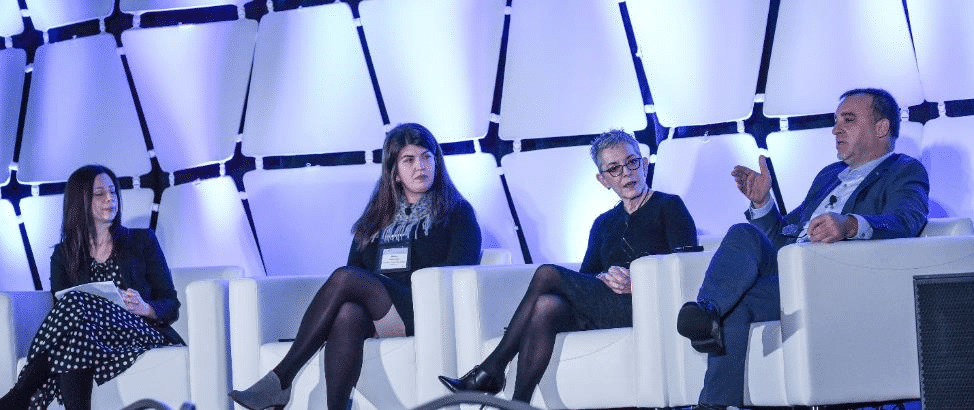
Teacher shortages vary across the country by subject area, but the shortage is worst in high-minority, low-income schools, in lower wage states, and in districts with poorer working conditions. This topic was explored during a “Deeper Dive” session at the AACTE 2019 Annual Meeting titled “Successful Strategies for the Teacher Shortage.”
Jessica Cardichon of the Learning Policy Institute led the panel discussion, which included Patricia Alvarez McHatton (University of Texas), Selma Powell, (University of Washington), and Mario Santos (Newark Public Schools). Each participant shared their strategies for addressing the teacher shortage in three critical areas: recruitment, completion, and retention.
04 Mar2019
By Brandon R.T. Frost
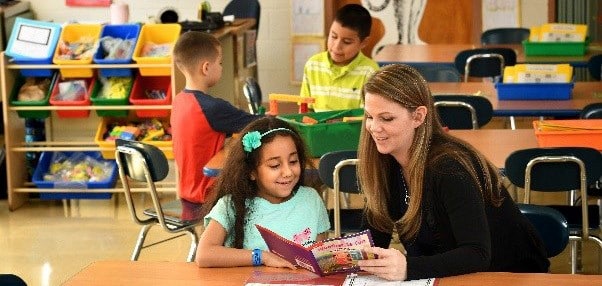
AACTE is now accepting applications from member institutions to join a new networked improvement community (NIC) focused on special education teacher recruitment and retention.
The shortage of special education teachers and the lack of diversity among all teachers have been well documented. Half of all schools and 90% of high-poverty schools struggle to find qualified special education teachers.
The aim of this NIC is to positively impact the special education teacher shortage and the lack of diversity in the special education teacher workforce in public schools. Participating institutions will identify a range of best practices related to increasing enrollment, strengthening partnerships with P-12 schools, and retaining special education teachers.
Read more about this new initiative on our website and in the Reducing the Shortage of Special Education Teachers NIC Charter.
Applications are due on April 1, 2019. Member institutions will be selected through a structured review process and notified in late April of 2019. An introductory virtual meeting will be held in May of 2019, and the first in-person convening will be held in the fall of 2019.
13 Feb2019
By Jacqueline Rodriguez
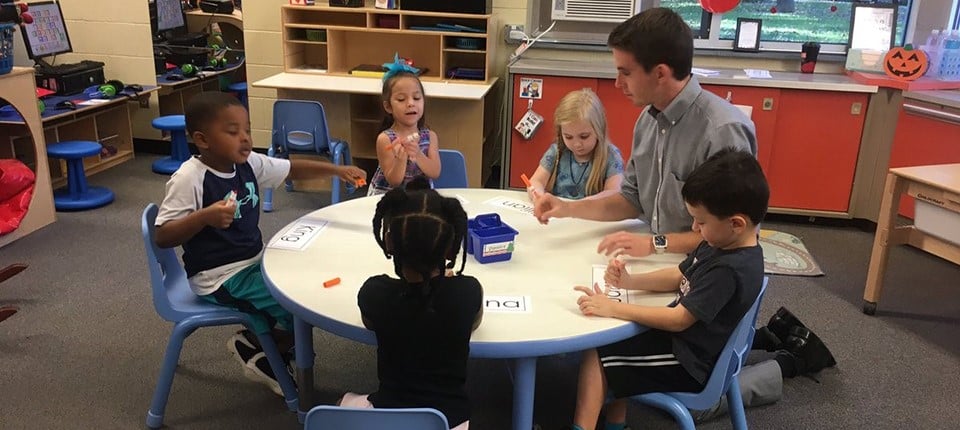 AACTE will launch a Networked Improvement Community focused on Special Education Teacher Recruitment and Retention in May of 2019. The NIC will investigate strategies to address the persistent shortages in the field of special education.
AACTE will launch a Networked Improvement Community focused on Special Education Teacher Recruitment and Retention in May of 2019. The NIC will investigate strategies to address the persistent shortages in the field of special education.
The shortage of special education teachers and the lack of diversity among all teachers have been well documented. Half of all schools and 90% of high-poverty schools struggle to find qualified special education teachers. Forty-eight states and the District of Columbia report special education teacher shortages. However, special education teacher shortages are not evenly distributed across the country. Generally, high poverty areas—both urban and rural—are most likely to experience the most severe teacher shortages, including those in special education. States vary in the degree of shortage they experience.
15 Nov2018
By Jerrica Thurman
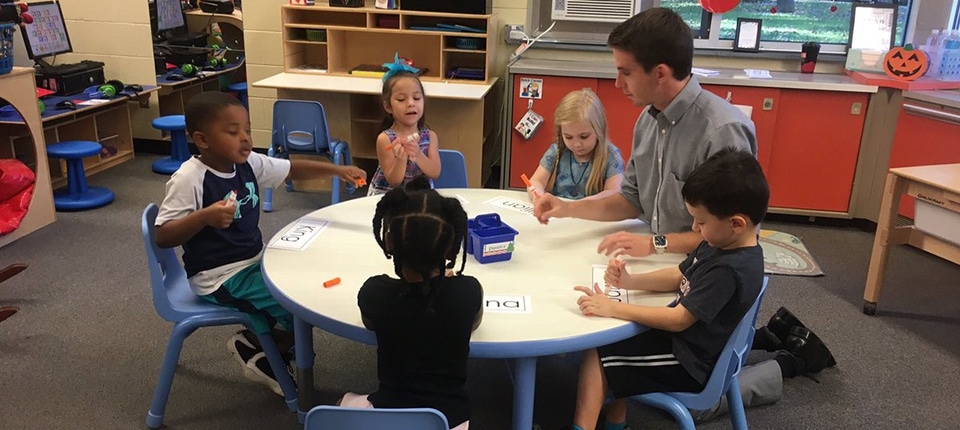
AACTE is a national partner for the University of Florida’s Collaboration for Effective Educator Development, Accountability, and Reform (CEEDAR) Center, which helps states and institutions of higher education to develop the ability of every teacher to prepare students with disabilities for college and careers. As a federally funded multi-million dollar project, CEEDAR works with AACTE and others to promote the preparation of all educators to have the mindset and skillset for effectively instructing students with disabilities along with all other students in the mainstream classroom.
“This initiative is about ensuring that all educators have the skills to work effectively with students with disabilities,” said AACTE Consultant Jane West, who leads the Association’s work with CEEDAR. “Special education has too often been considered a place and not a service. We are highlighting and promoting preparation for both general and special educators so they can provide effective instruction to students with disabilities in inclusive ways with an eye toward raising expectations and undermining the stigmatizing of students with disabilities.”
05 Nov2018
By Brian McNeill

This article originally appeared online at news.vcu.edu and is reposted with permission.
The U.S. Department of Education has awarded a $4.97 million grant to expand Richmond Teacher Residency, help provisionally licensed science, technology, engineering and math teachers move toward full licensure, and provide math and science training to hundreds of local elementary and special education teachers.
Richmond Teacher Residency, a program in the Virginia Commonwealth University School of Education, is an intensive, school-based teacher preparation program that integrates a research-supported approach for effective teaching with real-world classroom experience. Residents teach in local schools under the mentorship of a veteran teacher, while also earning a graduate degree in either education or teaching from VCU.
14 Sep2018
By Mike Enright

This article originally appeared in UConn Today and is reposted with permission. The University of Connecticut is 1 of 10 institutions participating in AACTE’s Black and Hispanic/Latino Male Teacher Initiative Networked Improvement Community (NIC). To learn more about how UConn developed the programs noted in the article through its participation in the NIC, visit this AACTE webinar and Ed Prep Matters blog post featured in 2016.
A lack of diversity among classroom teachers in elementary and secondary schools has long been a national issue. In the state of Connecticut alone, less than 8 percent of teachers are of color, while students of color represent 40 percent of the population.
14 Aug2018
By Thomas E. Hodges
CarolinaTIP Director Nicole Skeen, right, works with first-year teacher Karlee Baxter and students in Baxter’s classroom.
Teacher shortages are a critical concern across the United States, and the University of South Carolina is tackling the crisis head-on with an innovative response to teacher retention. While recruiting new teachers into the profession is vitally important, reducing the alarming rate at which novice teachers leave the profession must be a central focus in addressing the teacher shortage, as shared in a recent op-ed by University of South Carolina College of Education Dean Jon Pedersen.
“If you add the belief that teacher preparation and support should not end at graduation, a desire to gather data to inform programmatic improvement, and a teacher retention issue to new accreditation standards and a college leadership team determined to make a positive impact on the profession, beyond the walls of the university, you arrive at the impetus for the Carolina Teacher Induction Program (CarolinaTIP),” said Cindy Van Buren, assistant dean and one of the developers of the college’s induction program.
















 AACTE will launch a Networked Improvement Community focused on Special Education Teacher Recruitment and Retention in May of 2019. The NIC will investigate strategies to address the persistent shortages in the field of special education.
AACTE will launch a Networked Improvement Community focused on Special Education Teacher Recruitment and Retention in May of 2019. The NIC will investigate strategies to address the persistent shortages in the field of special education.


